Uncategorized
Should We Fear Intelligent Machines?
On 21, Mar 2015 | In Uncategorized | By evan misshula
Please join the GC Digital Initiatives, the GC Digital Fellows, the PhD program in Computer Science and the CUNY Digital Humanities Initiative in welcoming Dr. Gerald J Sussman, who will present on the problems created by intelligent agents whose governing are purposefully obscured but whose actions are designed to benefit or harm humans.
This event will take place Tuesday, March 24th, at 6pm in the Mina Rees Library Concourse (C.197) at the Graduate Center, CUNY. This event will be live tweeted (follow @cunydhi and use #cunydhi).
Recently there has been a new round of concern about the possibility that Artificial Intelligence (AI) could get out of control and become an existential threat to humanity.” With the recent explosive application of AI technology we are faced with a problem: a technology so powerful and pervasive whose benefits accrue to private entities (Microsoft, Oracle, Google, facebook, Cigna, FICO, JP Morgan and Goldman Sachs) yet with both unexamined and unregulated consequences for private citizens.
How can we ensure that applications of this technology are constrained to provide benefits without excessive risk of harm? This is primarily a social, political, and economic issue, there are also significant technical challenges that we should address.
Sussman argues that intelligent agents must be able to explain their decisions and actions with stories that can be understood by other intelligent agents, including humans. Sussman goes further, adding that these programs must be capable of being held accountable for those activities in adversarial proceedings. For citizens to have confidence in these measures the software base for such agents must be open and free to be examined by all and modified, if necessary, to enhance good behaviors and to ameliorate harmful behaviors.
Biographical sketch of Gerald Jay Sussman
Gerald Jay Sussman is the Panasonic (formerly Matsushita) Professor of Electrical Engineering at the Massachusetts Institute of Technology. He received the S.B. and the Ph.D. degrees in mathematics from the Massachusetts Institute of Technology in 1968 and 1973, respectively. He has been involved in artificial intelligence research at M.I.T. since 1964. Sussman’s contributions to Artificial Intelligence include problem solving by debugging almost-right plans and various language structures for expressing problem-solving strategies. His work with Richard Stallman developed propagation of constraints for application to electrical circuit analysis and synthesis, and dependency-based explanation and backtracking. Sussman and his former student, Guy L. Steele Jr., invented the Scheme programming language in 1975.
Sussman pioneered the use of computational descriptions to communicate methodological ideas in teaching subjects in Electrical Circuits and in Signals and Systems. Over the past decade Sussman and Jack Wisdom worked across disciplines to develope a subject that uses computational techniques to communicate a deeper understanding of advanced Classical Mechanics. The task of formulating a method as a computer-executable program and debugging that program is a powerful exercise in the learning process. Also, once formalized procedurally, a mathematical idea becomes a tool that can be used directly to compute results. Sussman and Wisdom, with Meinhard Mayer, have produced a textbook, “Structure and Interpretation of Classical Mechanics,” to capture these novel ideas.
Sussman is a coauthor (with Hal Abelson and Julie Sussman) of the introductory computer science textbook used at MIT and many other universities. The textbook, “Structure and Interpretation of Computer Programs,” has been translated into French, German, Chinese, Polish, and Japanese. As a result of this and other contributions to computer-science education, Sussman received the ACM’s Karl Karlstrom Outstanding Educator Award in 1990, and the Amar G. Bose award for teaching in 1992.
Sussman is a fellow of the Institute of Electrical and Electronics Engineers (IEEE). He is a member of the National Academy of Engineering (NAE), a fellow of the American Association for the Advancement of Science (AAAS), a fellow of the Association for the Advancement of Artificial Intelligence (AAAI), a fellow of the Association for Computing Machinery (ACM), a fellow of the American Academy of Arts and Sciences, and a fellow of the New York Academy of Sciences (NYAS). Sussman is a founding director of the Free Software Foundation.
Grant Writing for Humanists
On 11, Mar 2015 | In Uncategorized | By Amanda Licastro
Please join the CUNY Digital Humanities Initiative, the English Program, and the Futures Initiative in welcoming Dr. Jennifer Guiliano, who will lead a grant writing workshop specifically aimed towards scholars working in the humanities.
This event will take place Friday, April 24th, at 2pm in the English Program Lounge (4406) at the Graduate Center, CUNY. RSVP recommended: https://www.eventbrite.com/e/grant-writing-for-humanists-tickets-16105258261.
Designed for humanities scholars seeking assistance with writing grants, this workshop introduces participants to best practices in writing and submitting a grant. This workshop will allow participants to work through key grant writing concepts, understand the process of developing successful grants, and allow them the opportunity to engage with a series of online resources, including presentations, exemplar successful grants, and podcasts that will position them to be successful in their grant-writing. A combination of lecture and hands-on, the workshop will result in a map for attendees to follow to complete their first (or improve their existing) grant.
Recommended: BYODevices and abstracts or materials for your current project. Collaborative projects welcome!
 Jennifer Guiliano is Assistant Professor in the Department of History at the Indiana University-Purdue University Indianapolis. She has served as a Post-Doctoral Research Assistant and Program Manager at the Institute for Computing in Humanities, Arts, and Social Sciences at the National Center for Supercomputing Applications (2008-2010) and as Associate Director of the Center for Digital Humanities (2010-2011) and Research Assistant Professor in the Department of History at the University of South Carolina. She most recently held a position as Assistant Director at the Maryland Institute for Technology in the Humanities at the University of Maryland where she also served as an adjunct instructor in the Department of History and the Digital Cultures program in the Honor’s College. Dr. Guiliano currently serves on the Association for Computing in the Humanities (ACH) Executive Council (2013-2016), as co-director with Trevor Muñoz of the Humanities Intensive Teaching + Learning Initiative (HILT), and as co-author with Simon Appleford of DevDH.org, a resource for digital humanities project development, and Getting Started in Digital Humanities (forthcoming, Wiley & Sons, 2016). She is also author of Indian Spectacle: College Mascots and the Anxiety of Modern America (Rutgers University Press, March 2015).
Jennifer Guiliano is Assistant Professor in the Department of History at the Indiana University-Purdue University Indianapolis. She has served as a Post-Doctoral Research Assistant and Program Manager at the Institute for Computing in Humanities, Arts, and Social Sciences at the National Center for Supercomputing Applications (2008-2010) and as Associate Director of the Center for Digital Humanities (2010-2011) and Research Assistant Professor in the Department of History at the University of South Carolina. She most recently held a position as Assistant Director at the Maryland Institute for Technology in the Humanities at the University of Maryland where she also served as an adjunct instructor in the Department of History and the Digital Cultures program in the Honor’s College. Dr. Guiliano currently serves on the Association for Computing in the Humanities (ACH) Executive Council (2013-2016), as co-director with Trevor Muñoz of the Humanities Intensive Teaching + Learning Initiative (HILT), and as co-author with Simon Appleford of DevDH.org, a resource for digital humanities project development, and Getting Started in Digital Humanities (forthcoming, Wiley & Sons, 2016). She is also author of Indian Spectacle: College Mascots and the Anxiety of Modern America (Rutgers University Press, March 2015).
Wednesday, April 30th, 6:30pm: Jason Q. Ng and Ying Zhu on Chinese Media Censorship
On 29, Apr 2014 | In Uncategorized | By Amanda Licastro
Please join us Wednesday, 4/30 at 6:30pm in Room C197 for Chinese Media Censorship with Ying Zhu, and Jason Q. Ng, as they explore the intricacies of how and why Chinese authorities regulate media—as well as how they enlist journalists, companies, and citizens in the task.
Wednesday, April 30th, 6:30pm
Chinese Media Censorship
Jason Q. Ng and Ying Zhu
Room C197
Though often described with foreboding buzzwords such as “The Great Firewall” and the “censorship regime,” media regulation in China is rarely either obvious or straightforward. Join media scholars Ying Zhu, author of Two Billion Eyes, a newly published book on Chinese television, and Jason Q. Ng, author of Blocked on Weibo, a newly published book on the most important social media website in China, as they explore the intricacies of how and why Chinese authorities regulate media—as well as how they enlist journalists, companies, and citizens in the task.
Cosponsored by The Center for the Humanities, CUNY Graduate School of Journalism, Department of Media Culture, College of Staten Island, CUNY, and the Interactive Technology and Pedagogy Certificate Program, The Graduate Center, CUNY
Miriam Posner, “How Did They Make That? Reverse Engineering Digital Projects” – 3/27/14
On 24, Mar 2014 | In Uncategorized | By Matthew K. Gold
Please join CUNY DHI for a special presentation on making DH projects by Miriam Posner, Digital Humanities program coordinator and a member of the core DH faculty at the University of California, Los Angeles. The event, which is co-sponsored by the Fordham Fordham Digital Humanities Working Group, will take place on March 27 from 6:30-8:30pm in room C202. Please register here.
“How Did They Make That? Reverse Engineering Digital Projects”
The catch-all term “digital project” can refer to a daunting array of technologies and methods. For a newcomer (or even an experienced practitioner), it can be hard to know where to start. In this presentation, we’ll examine a range of digital projects to get a handle on what’s out there. Then I’ll share some simple principles for figuring out the sources and technologies that constitute a “project.” You can use these principles to model your own project, or just to understand and evaluate someone else’s.
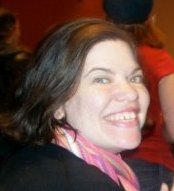 Miriam Posner is the Digital Humanities program coordinator and a member of the core DH faculty at the University of California, Los Angeles. She teaches in the DH program, advises undergraduate and graduate students, and ensures the smooth development of this new interdisciplinary program. Prior to joining UCLA, Posner was a Mellon Postdoctoral Fellow at the Emory University Library’s Digital Scholarship Commons. The author of a number of pieces on digital humanities, Posner also writes on the history of technology, particularly the history of medical imaging. Her book, Depth Perception, on medical filmmaking, is under contract with the University of North Carolina Press.
Miriam Posner is the Digital Humanities program coordinator and a member of the core DH faculty at the University of California, Los Angeles. She teaches in the DH program, advises undergraduate and graduate students, and ensures the smooth development of this new interdisciplinary program. Prior to joining UCLA, Posner was a Mellon Postdoctoral Fellow at the Emory University Library’s Digital Scholarship Commons. The author of a number of pieces on digital humanities, Posner also writes on the history of technology, particularly the history of medical imaging. Her book, Depth Perception, on medical filmmaking, is under contract with the University of North Carolina Press.
Announcing the CUNY DHI Spring 2014 Speaker Series
On 26, Feb 2014 | In Uncategorized | By Amanda Licastro
We are pleased to announce our schedule of events for the spring semester at the Graduate Center, CUNY. More information about each event will be posted, so please follow this blog and our twitter feed @cunydhi for updates.
Andrew Stauffer (UVA) – Feb. 19, 6:30-8:30pm in room C205 – “”Postcard from the Volcano: The Research Library after Wide-Scale Digitization.”
Tanya Clement (UT-Austin)– March 5th, 6:30-8:30pm in room C197 – “HiPSTAS, What?: Information Retrieval, Machine Learning, and Visualizations with Sound” (details here).
Doug Rushkoff – March 12th, 3:45pm in room C202 – “Technology as Classroom: the media environment as pedagogy.” Co-Sponsored with the Center for the Humanities.
Miriam Posner (UCLA) – March 27, 6:30-8:30pm in room C202 – A presentation on digital pedagogy. Co-Sponsored by The Fordham Digital Humanities Working Group
Jonathan Hope, “Flatlands: Book History, Literary Criticism, and Hyperdimensional Geometry.” – April 2, 2014, 2pm-4pm, Room 6495 – co-sponsored with the Renaissance Studies Certificate Program.
Around CUNY in 100 Minutes“- Time/Room/Title TBA. If you are a member of the CUNY community and working on a DH project consider showcasing it in a 5 minute “lightning talk.” Please contact us @cunydhi (or email amanda[dot]licastro[at]gmail.com) for details.
Lauren Klein (Georgia Tech)– April 10th, 7pm-9pm (room TBD) – “The Long Arc of Visual Display.”
Ying Zhu and Jason Ng – April 30th, 6:30 PM in room C197 – Chinese Media Censorship. Co-sponsored by The Center for the Humanities; the Interactive Technology and Pedagogy Certificate Program, CUNY Graduate Center; Department of Media Culture, College of Staten Island; CUNY Graduate School of Journalism.
THATCamp Digital Writing – May 2nd at John Jay College, CUNY and May 3rd at Fordham Lincoln Center. Registration opens March 3rd http://digitalwriting2014.thatcamp.org/
DH Praxis Project Launch Event — May 12, 4pm-6pm, Skylight Room, Graduate Center, CUNY
Andrew Stauffer “Postcard from the Volcano: The Research Library after Wide-Scale Digitization,” Wed. 2/19, 6:30-8:30pm
On 13, Feb 2014 | In Uncategorized | By Amanda Licastro
Please join CUNY DHI and the Digital Praxis Seminar for a talk by Andrew Stauffer, “Postcard from the Volcano: The Research Library after Wide-Scale Digitization.”
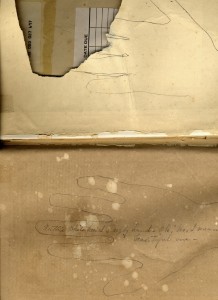 What will become of the print collections? As the historical record is translated to digital forms, academic research libraries are under pressure to manage down their physical holdings and repurpose stack space. In this presentation. I address our need as humanities scholars for a hybrid print-digital environment, one that takes rich advantage of digital technologies even as it finds new ways of seeing individual printed volumes. The 19th-century book — plentiful, out of copyright, often in poor condition — is at particular risk in the coming decade. My conviction is that the vulnerability of this material is bound up with its particular value to our cultural moment, that we are deaccessioning books at precisely the moment when we are most in need of their particular lessons regarding modern media, reading habits,and academic institutions. In this presentation, I focus primarily on personal marginalia in copies of nineteenth-century books, demonstrating the importance of individual copies to our understanding of what books as media – especially books of poetry – were for. In addition, I introduce several initiatives aimed at getting scholars and library policy makers together to chart a course for the future of the print record in our libraries.
What will become of the print collections? As the historical record is translated to digital forms, academic research libraries are under pressure to manage down their physical holdings and repurpose stack space. In this presentation. I address our need as humanities scholars for a hybrid print-digital environment, one that takes rich advantage of digital technologies even as it finds new ways of seeing individual printed volumes. The 19th-century book — plentiful, out of copyright, often in poor condition — is at particular risk in the coming decade. My conviction is that the vulnerability of this material is bound up with its particular value to our cultural moment, that we are deaccessioning books at precisely the moment when we are most in need of their particular lessons regarding modern media, reading habits,and academic institutions. In this presentation, I focus primarily on personal marginalia in copies of nineteenth-century books, demonstrating the importance of individual copies to our understanding of what books as media – especially books of poetry – were for. In addition, I introduce several initiatives aimed at getting scholars and library policy makers together to chart a course for the future of the print record in our libraries.
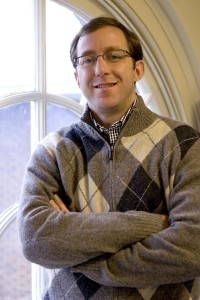 Andrew Stauffer is associate professor of English at the University of Virginia, where he also serves as Director of NINES (Networked Infrastructure for Nineteenth-century Electronic Scholarship) and a member of the teaching faculty of the Rare Book School. He is the author of _Anger, Revolution, and Romanticism_ (Cambridge UP, 2005) and the editor of works by Robert Browning (for Norton) and H. Rider Haggard (for Broadview), and he has published widely on nineteenth-century literature. Stauffer has served as principal investigator on digital humanities grants from Google (for Juxta) and the NEH, and he has received fellowships from the NEH, the ACLS, the Huntington, and the NYPL. His current book project is “Postcard from the Volcano: The Troubled Archive of Nineteenth Century Literature.”
Andrew Stauffer is associate professor of English at the University of Virginia, where he also serves as Director of NINES (Networked Infrastructure for Nineteenth-century Electronic Scholarship) and a member of the teaching faculty of the Rare Book School. He is the author of _Anger, Revolution, and Romanticism_ (Cambridge UP, 2005) and the editor of works by Robert Browning (for Norton) and H. Rider Haggard (for Broadview), and he has published widely on nineteenth-century literature. Stauffer has served as principal investigator on digital humanities grants from Google (for Juxta) and the NEH, and he has received fellowships from the NEH, the ACLS, the Huntington, and the NYPL. His current book project is “Postcard from the Volcano: The Troubled Archive of Nineteenth Century Literature.”
Also, join NYC DH for a #digibar meet-up after this event at The Archive. Updates posted here: http://nycdh.org/groups/digibar/
Larry Smarr on Digital Culture and the Future Internet: Wed, 10/30
On 28, Oct 2013 | In Uncategorized | By Amanda Licastro
Wednesday, Oct 30th, 2013, 6:00pm, Room C205 at the Graduate Center, CUNY.
This event is co-sponsored by the the DH Praxis Seminar and the Center for the Humanities: http://centerforthehumanities.org/events/Digital-Culture-and-the-Future-Internet.
This event is free and open to the public, registration is not mandatory.
Please reserve you space here: http://cunydhi-smarr.eventbrite.com
Larry Smarr
Professor Larry Smarr is a physicist and leader in scientific computing, supercomputer applications, and Internet infrastructure at the University of California, San Diego. In 2000, Smarr moved to California and proposed the creation of the California Institute for Telecommunications and Information Technology (Calit2), linking departments and researchers at UCSD and UC Irvine. Smarr currently serves as Institute Director of Calit2.
Digital Culture and the Future Internet
Join Larry Smarr, founding Director of the California Institute for Telecommunications and Information Technology (Calit2), as he explores the future of the Internet and digital culture. The Institute develops next generation of information technologies, including optical networks, information visualization, and global telepresence. Under Smarr’s leadership, Calit2 also supports a wide range of innovative projects in digital humanities and in digital art. In these projects, humanists and artists collaborate with scientists to explore potential of new technologies which will not become widely available for another 10-15 years.
To join the digital conversation, use the hash tags: #digitalgc and #cunydhi
Doug Eyman and Collin Brooke, October 8th 6:30-8:30pm
On 25, Sep 2013 | In Uncategorized | By Amanda Licastro
Please join CUNY DHI and the Graduate Center Composition and Rhetoric Community (GCCRC) for a conversation about the intersection of writing studies and digital humanities with Doug Eyman and Collin Brooke. We are excited to welcome these two innovative scholars to share in an important discussion concerning the future of digital rhetoric. Doug Eyman is a professor of digital rhetoric, technical and scientific communication, and professional writing at George Mason University and the senior editor of Kairos: A Journal of Rhetoric, Technology, and Pedagogy; Collin Brooke is a professor of of Rhetoric and Writing at Syracuse University and is the author of Lingua Fracta: Towards of Rhetoric of New Media (complete bios below).
This event will take place on Tuesday, October 8th from 6:30-8:30pm at the Graduate Center, CUNY in Room C415A.
Doug Eyman 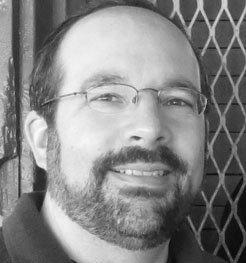
Digital Rhetoric and the Infrastructure of DH
Bio:
Collin Brooke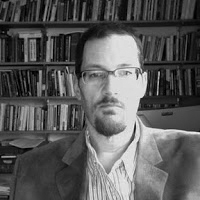
Too Big to Scale? Culturomics and Crypto-Rhetorics
Since the Google Books Team’s 2010 article in Science and their release of the N-Gram Viewer, the idea of “culturomics” has begun to appear in a variety of academic studies (e.g., Twenge et al.2012, Kesebir & Kesebir 2012, Greenfield 2013). While the resulting claims have garnered attention, both in academic circles and in the popular media, we have spent less time examining the methodological assumptions behind these studies. As a method, culturomics presupposes certain relationships between language and culture; those of us who study rhetoric and digital humanities should be conscious of and prepared to interrogate those assumptions. Drawing on network studies as well as what Hayden White once described as the “tropics of discourse,” this presentation offers both an examination and critique of culturomics as method.

Bio:
Spring 2013 CUNY Digital Studies/Digital Humanities Seminar Schedule
On 25, Feb 2013 | In Uncategorized | By Charlie Edwards
We are delighted to announce the schedule for our Spring 2013 speaker series, kindly sponsored by the GC Digital Initiatives Program.
All events are free and open to the public, and take place at the CUNY Graduate Center.
Thursday February 28: Mary Flanagan (Dartmouth College)
“Never Mind the Body, Here’s a Gamepad? Considering Embodiment in The Age of Play”
Sponsored by the English Student Association, Doctoral Students’ Council, GC Digital Initiatives, and CUNY Digital Humanities Initiative
Time & Place: 4:00pm-5:30pm, Room C204-205, CUNY Graduate Center
Opening keynote for “Minding the Body: Dualism and its Discontents,” an interdisciplinary conference hosted by the English Student Association at CUNY Graduate Center.
This keynote presentation explores a pervasive onscreen/offscreen split of identification and the body in what we could now call The Age of Play. Citing examples from artists’ work and popular culture, with a focus on games, Flanagan leads the audience on an investigation of current trends that are in diametrical opposition: on the one hand, a hunger for embodied, resonant experience; and on the other, a desire for control for the body, a recurring motif in fields from psychology to public health, manifesting in plastic surgery and digital manipulation of the body.
Mary Flanagan is Sherman Fairchild Distinguished Professor in Digital Humanities at Dartmouth College and Director of Tiltfactor Laboratory. She writes at Grand Text Auto; see also her work on Values at Play.
Wednesday March 20: Anne Balsamo (The New School)
“The Cultural Work of Interactive Memorials: Lessons from the AIDS Memorial Quilt Digital Experience Project”
Time & Place: 6:30pm-8:30pm, CUNY Graduate Center, Room 3212
Anne Balsamo is Dean of the School of Media Studies and Professor of Media Studies at The New School for Public Engagement. She is a national leader in media studies, scholar and media-maker whose work links cultural studies, digital humanities, and interactive media. See more about her work at her site, Designing Culture.
Thursday April 4: Kari Kraus (University of Maryland)
“Experiments in Design Fiction”
Time & Place: 6:30pm-8:30pm, CUNY Graduate Center, Room 6421
Kari Kraus is an assistant professor in the College of Information Studies and the Department of English at the University of Maryland. Her research and teaching interests focus on new media and the digital humanities, textual scholarship and print culture, digital preservation, transmedia storytelling, and game studies.
Wednesday April 10: Rita Raley (University of California, Santa Barbara) This event has been cancelled due to a scheduling conflict.
“Towards a Critical Digital Humanities”
Time & Place: 6:30pm-8:30pm, CUNY Graduate Center, Room 6417
Wednesday April 17: Arienne Dwyer (University of Kansas)
“Using Languages as Historical Sources”
Time & Place: 6:30pm-8:30pm, CUNY Graduate Center, Room 3212
Arienne M. Dwyer is a Professor of Linguistic Anthropology, affiliated with Linguistics and Indigenous Nations Studies, and Co-Director of the Institute for Digital Research in the Humanities at the University of Kansas. Her work focuses on language change; she has conducted 20 years of local research with individuals and communities in Inner and Central Asia and has directed a number of collaborative documentation and archiving projects.
Thursday May 2: Beth Harris (Khan Academy)
“Art History Education Goes Digital: The Problem (& Promise) of the Digital Image”
Time & Place: 6:30pm-8:30pm, CUNY Graduate Center, Room 6421
Beth Harris is dean of Art and History at the Khan Academy. She and Dr. Steven Zucker are Executive Editors of Smarthistory at Khan Academy, an open educational resource for art history that they co-founded (as smarthistory.org) in 2005. Before joining the Khan Academy, she was Director of Digital Learning at The Museum of Modern Art, where she started MoMA Courses Online.
Dec. 1: Tom Scheinfeldt on “Stuff Digital Humanists Like: Defining Digital Humanities by its Values”
On 28, Nov 2010 | In Uncategorized | By Matthew K. Gold
 Please join us on Wednesday, December 1, when The CUNY Digital Humanities Initiative and The CUNY Digital Studies Group will welcome Tom Scheinfeldt, Managing Director of George Mason University’s Center for History & New Media (CHNM), who will be speaking about “Stuff Digital Humanists Like: Defining Digital Humanities by its Values.”
Please join us on Wednesday, December 1, when The CUNY Digital Humanities Initiative and The CUNY Digital Studies Group will welcome Tom Scheinfeldt, Managing Director of George Mason University’s Center for History & New Media (CHNM), who will be speaking about “Stuff Digital Humanists Like: Defining Digital Humanities by its Values.”
At a time when the number and scope of digital humanities projects are growing, Tom’s talk represents an effort to step back and attempt to understand what differentiates successful and unsuccessful DH projects. What lessons can be drawn from projects that fly and those that fall flat? What inferences can be made about the DH community itself based on the types of projects it supports?
This will be our last talk of the semester, so please be sure to join us. We will be gathering for a final meal with CUNY Pie on Thursday, December 2 at 6pm, when we’ll visit John’s Pizza on Bleeker Street.
Time & place: December 1st , 6:30pm-8:30pm, CUNY Graduate Center, Room 9207.
—
TOM SCHEINFELDT is Managing Director of the Center for History and New Media and Research Assistant Professor of History in the Department of History and Art History at George Mason University.
Tom received his bachelor’s degree from Harvard and his master’s and doctoral degrees from Oxford, where his doctoral thesis examined inter-war interest in science and its history in diverse cultural contexts, including museums, universities, World’s Fairs and the mass media. A research associate at the Smithsonian Institution Archives and a fellow of the Science Museum, London, Tom has lectured and written extensively on the history of popular science, the history of museums, history and new media, and the changing role of history in society, and has worked on traditional exhibitions and digital projects at the Colorado Historical Society, the Museum of the History of Science in Oxford, The Louisiana State Museum, the National Museum of American History, and the Library of Congress. In addition to managing general operations at the Center for History and New Media, Tom directs several of its online history projects, including Omeka, THATCamp, One Week | One Tool, the September 11 Digital Archive, the Hurricane Digital Memory Bank, the Papers of the War Department, 1784-1800, and Gulag: Many Days, Many Lives.
Along with his blog Found History, Tom co-hosts the podcast Digital Campus with colleagues Dan Cohen and Mills Kelly. You can follow Tom on Twitter, Linkedin, and Zotero.

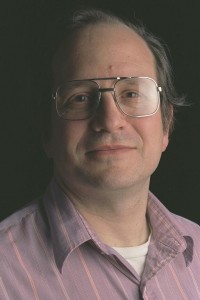
![top-73-censored-weibo[1]_0](https://cunydhi.commons.gc.cuny.edu/files/2014/04/top-73-censored-weibo1_0-300x254.jpg)

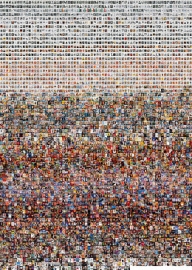
 Welcome to the blog of the CUNY DHI, an effort to build momentum and community around Digital Humanities practitioners at CUNY. We hope you'll join us at our upcoming events and that you'll follow this blog to hear about the latest news in the field.
Welcome to the blog of the CUNY DHI, an effort to build momentum and community around Digital Humanities practitioners at CUNY. We hope you'll join us at our upcoming events and that you'll follow this blog to hear about the latest news in the field.



Recent Comments